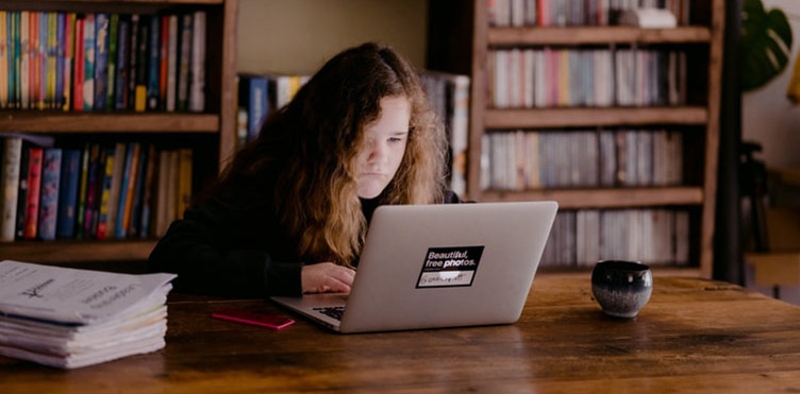Tips for supporting your child's learning at home
Author: UNB Alumni
Posted on Jun 30, 2020
Category: Insights

It can be hard to keep kids motivated and focused on continued learning while at home due to COVID-19. We asked our UNB-educated K-12 teachers to chime in with their top tips to help parents and kids during this time. We received responses from across Canada and around the world. Here’s what they had to say.
Patti Melvin–Doyle (BA’98, BEd’00, MEd’09), elementary school teacher: “For K-5 your home is not a classroom. Your children need to feel safe, calm and loved during the uncertain time. Have a routine but allow time for things they enjoy, laughter and lots of outdoor time too. Learning doesn’t only happen sitting at a desk.”
Mitch Bird (BKin’04, BEd’04), middle school behavioural support teacher: “Parents shouldn't feel pressured into recreating a typical school day. Instead, families should try to incorporate subject content into their daily routines. Take advantage of their child's interests and explore other types of learning opportunities such as gardening or baking or simply being physically active as a family. Try to find a balance between your family's natural rhythm and their educational needs.”
Mark Garnett (BEd’04), high school teacher: “Try to plan a regular time everyday where work is done, try to make it somewhat of a routine. But not everyday is going to be the same! Older students especially will have varying amounts of material to do from day to day and week to week. So, try to be flexible. Encourage a little bit of outside time - do their reading outside if the weather permits. Make sure the reading time is phone free. Seriously. And finally, ENCOURAGE THEM TO DO THE WORK. One of the greatest challenges we have as high school teachers is motivation. Many students aren’t seeing the point of doing any work since they are all being promoted. Helping students see the benefits of preparedness for higher education is tough when we deal with young people who are very ‘short-term satisfaction’ motivated.”
Susan Brillant (BA/BEd’08, MEd’12), elementary school teacher: “Read every day! Encourage your child to make their own schedule for the day. Tell them how much time to schedule for schoolwork, screen time, physical activity and chores and then let them decide which order to do them in and how to fill the remaining time in their day. Children take ownership when they have some control over their schedule.”
Sue Belzile (BEd ’01), high school teacher: “Allow students some flexibility with how they set up their work schedule. It is not often that students are able to have a more flexible schedule so letting them sleep in is not the worst idea ever. I would suggest having students make a list at the beginning of the week of the big, "must-do" tasks for the week and then set aside two or three work blocks a day to work on them. Limit the work blocks to an hour at most - followed by a break and then another work block later in the day. I often suggest to students to select the task they least want to do and do that one first - then they are finished with it. I'm also trying to reassure students that everyone is in the same boat - next year teachers will know to compensate for the gaps in learning that might exist from this year and that they shouldn't worry too much about what they might not get covered. My main concern is students' physical, emotional and mental well-being - school work should come after that.”
Ashley Dobbin (BA/BEd’07, MEd’11), elementary school principal: “Vary activities between preferred and non-preferred while taking breaks as needed. Some of the best learning opportunities will authentically help families enjoy their time at home - whether it’s baking something together and talking about measurements or playing a game and working on counting and critical thinking, kids will also learn important social and emotional skills such as turn-taking and good sportsmanship. It’s important to acknowledge the tremendous struggle we all face, and recognize that teachers will do their best to pick up where we left off when school resumes.”